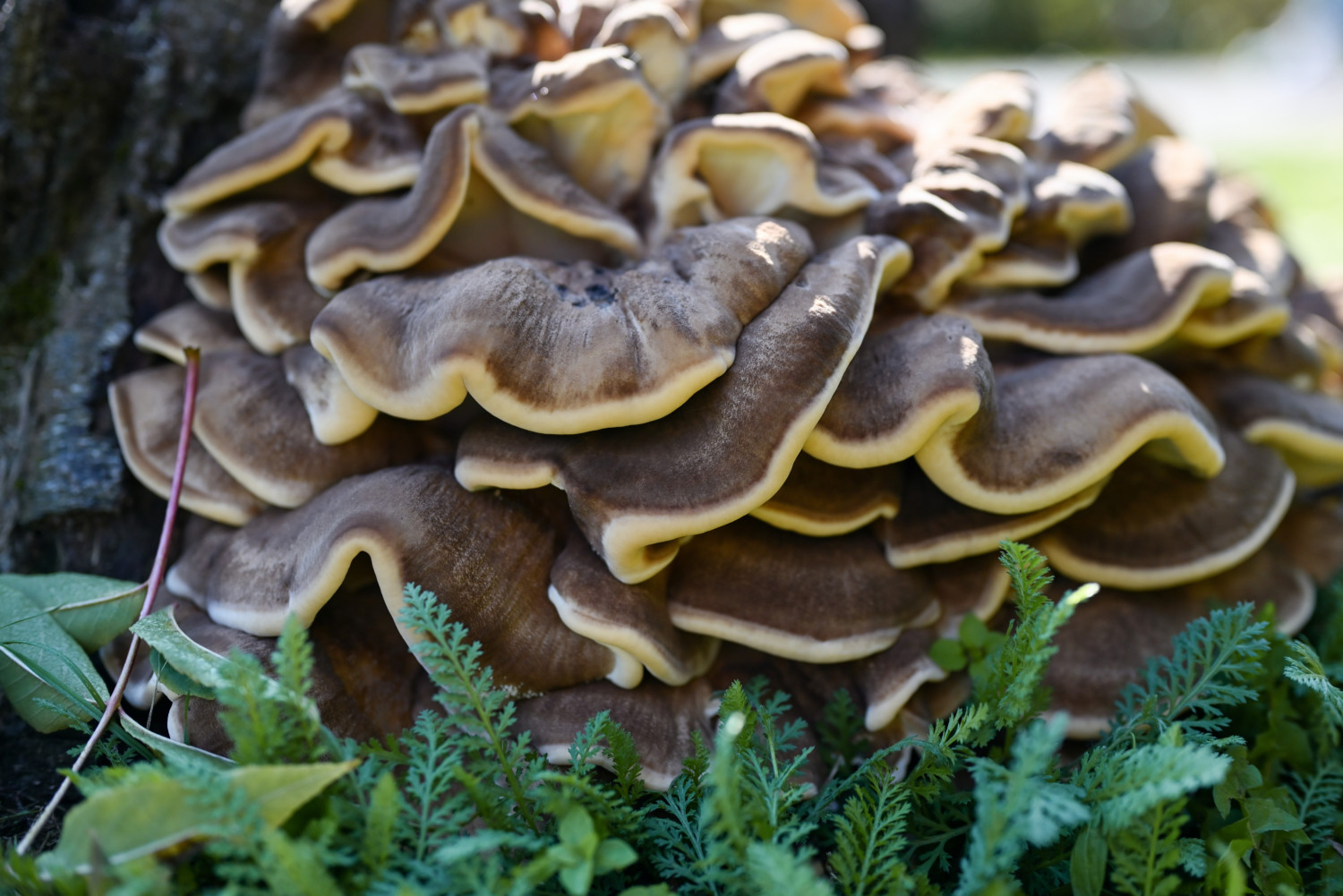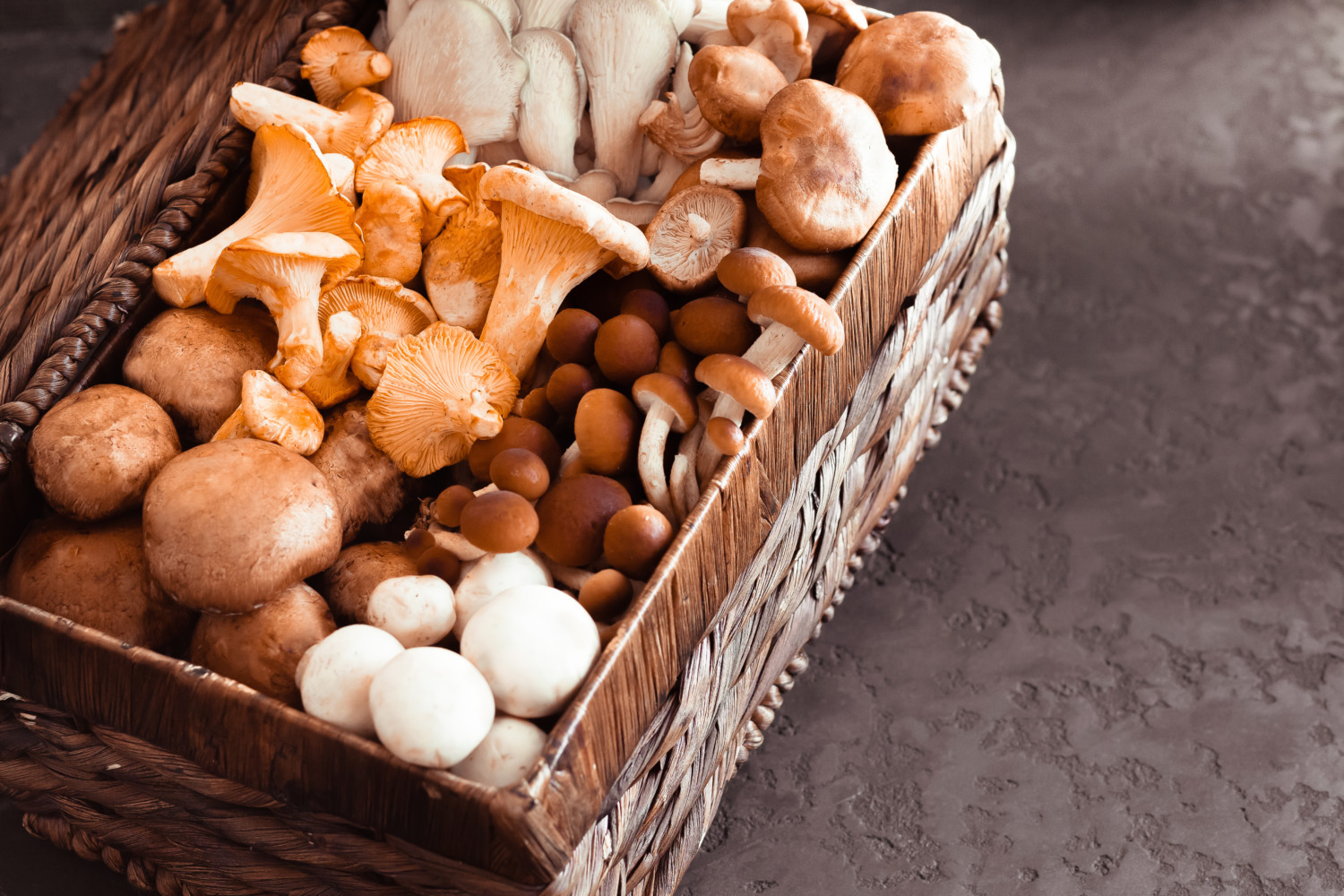Mushrooms can be an abundant source of free food if you know what you’re doing. They can enhance a meal or be the savory star of a dish. They are available in dozens of shapes, sizes and colors. But are mushrooms good for you?
If you are a mushroom lover, you’ll be happy to learn that the edible fungi, which are counted as a vegetable for cooking purposes, do have numerous health benefits and are even considered to be a superfood by many. Keep reading to learn more about this versatile food and how you can enjoy the tasty flavor and wholesome nutrition mushrooms offer.
What Are Mushrooms?
When you think of a mushroom, you might picture a small, white, umbrella-shaped object or perhaps a whimsical, red-capped plant. And while many mushrooms do have this appearance, there are also numerous other types.
Woody, oyster-like mushrooms often grow on the sides of trees, and you can find stringy mushrooms like lion’s mane at the base of tree trunks. Puffball mushrooms look like a cross between large, white stones and marshmallows. There are even bioluminescent mushrooms.

Although they grow, mushrooms are not technically considered plants, nor are they part of the animal kingdom. Instead, mushrooms are a type of fungus that obtain nutrients differently from plants or animals. They grow into a food source, secrete enzymes that digest food externally and absorb the digested nutrients.
Experts estimate that more than 10,000 mushroom species are found in the United States alone. But are mushrooms good for you? Unfortunately, not all of them are. Only a tiny percent of these are edible, and another fraction actually taste good. However, those that you can and should eat have numerous health benefits.
Are Mushrooms Good for You?
Mushrooms can be a surprisingly nutritious addition to a healthy diet. They may be small, but they pack a big punch with vitamins and other nutrients. For instance, mushrooms are loaded with potassium and selenium.
“Potassium can help lower high blood pressure, while selenium is an antioxidant that protects your cells from free radicals,” Joan Salge Blake, a registered dietitian nutritionist and nutrition professor at Boston University, told Consumer Reports. “If free radicals accumulate faster than your body can neutralize them, their damaging effects can contribute to chronic diseases such as heart disease and age-related macular degeneration.”

Mushrooms also provide the following nutrients:
- B vitamins, which help provide energy and support the nervous system.
- Riboflavin, which also supports the nervous system and helps with hormone production.
- Niacin, which helps maintain healthy red blood cells.
- Pantothenic acid, which supports the skin and the digestive and nervous systems.
- Ergothioneine, an antioxidant.
- Copper, which helps in red blood cell production and promotes healthy nerves and bones.
- Vitamin D, which has numerous benefits, including reducing cancer cell growth, controlling infections and reducing inflammation.
Some mushrooms contain beta-glucans, which boost immunity, contribute to allergy resistance and may support the metabolism of fats and sugars. Mushrooms are fat- and cholesterol-free and low in calories and sodium. So, are mushrooms good for you? Undoubtedly, yes!
How to Prepare Mushrooms
As well as being good for you, mushrooms can be a delicious part of any diet, whether you are vegan, vegetarian or omnivorous.
You can stuff the caps of many types of mushrooms, such as button, cremini or portobello, with a mixture of flavorful ingredients like herbs, cheese, nuts and veggies. You can slather them in oil and balsamic vinegar, sprinkle them with herbs and roast mushrooms to make a mouthwatering side dish.

Grilled portobellos can be a savory vegetarian burger substitute. Sauteed mushrooms can add unique flavor to pasta dishes, casseroles, burgers or steaks, or you can enjoy them on their own. You can also add cleaned, raw mushrooms to a salad or enjoy them as a snack. The options are nearly limitless.
Taking Mushrooms as Supplements
Mushrooms have been used in Eastern medicine for centuries. Different varieties of mushrooms can have various benefits. For instance, although research has been limited, studies have shown promise in treating cancer and fighting dementia. Supplementing with mushrooms might have other advantages, as well.
“Some of the benefits you could expect from mushroom supplements include increased energy, improved muscle recovery, immune support, heart health, antioxidants, anti-inflammatory and concentration or cognition,” Alix Turoff, a registered dietitian, told Parade.

Of course, you should talk to your healthcare provider before trying mushroom supplements (or any new supplement), particularly if you have medical conditions or are on medications.
How To Pick The Right Mushrooms
While mushrooms are indeed good for you, eating the wrong ones could make you gravely ill. Although foraging can be a fun and affordable way to incorporate mushrooms into your diet, you should only do so if you are knowledgeable about wild mushrooms.
Educating yourself can turn mushroom hunting into an enjoyable and tasty pastime. However, if you are not experienced, choosing mushrooms from the grocery store or farmer’s market is safer.

When shopping for mushrooms, choose firm, smooth ones that are plump and not dried out. Store them in their original packaging or wrap them in a porous paper bag. To clean mushrooms, brush off any dirt or debris, rinse briefly and pat dry.
Mushrooms may last up to one week in the refrigerator.
This story originally appeared on Simplemost. Checkout Simplemost for additional stories.


